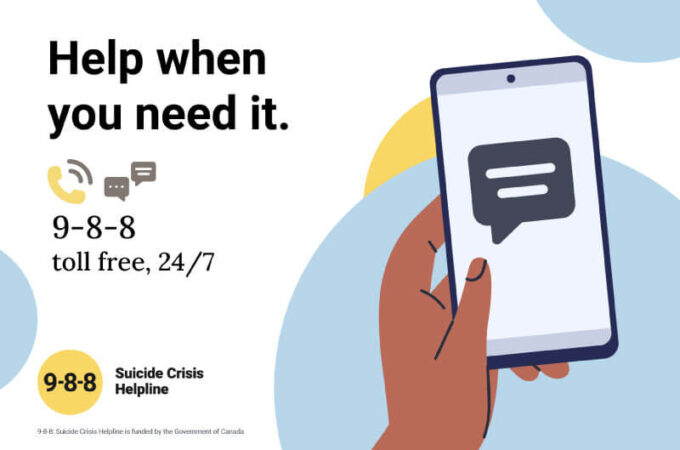This past week, Canada took another step forward to address fundamental changes in access to services for mental health. The 988 Suicide Crisis Hotline went live to provide immediate contact and support services for those in a mental health crisis. Calling or texting 988 gives anyone free twenty-four access to emergency suicide prevention services across all provinces and territories.
The 988 Suicide Crisis Hotline Is a Start, But Transformational Change Is Needed
Slowly but surely, the taboos around mental health are starting to be addressed. In the provision of health care, best practices are being developed to routinely include a mental health assessment as part of a physical health assessment. However, new practices often take a generation or more to imbed in frontline health provider practices. The first acknowledged discussion of mental health as an integrated part of physical health was in 1954, when Dr. Brock Chisholm, a psychiatrist and the first Director-General of the World Health Organization (WHO), promoted the idea that mental and physical health were intimately linked in his famous quote:
“Without mental health there can be no true physical health.” – Dr. George Brock Chisholm, the first WHO Director-General
There are global calls for transformational change in mental health and how we provide services to people. Without the needed investment in research and services, the services are fragmented and uncoordinated, with significant gaps in service for all age groups. The COVID-19 pandemic and resulting lockdowns fuelled more significant problems in mental health, such as increased substance abuse and suicidal ideation, and we are only beginning to understand those lessons. [1]
Statistics and Facts About Suicide From the 988 Suicide Crisis Hotline
For estate professionals who work with families across generations, we encourage you to look at and share the 988.ca website. The statistics and facts versus myths may surprise you:
- Eleven people die every day in Canada from suicide.
- 8 percent of Canadians have had thoughts of suicide at some point in their life, and
- For every person who commits suicide, as many as 135 people can be impacted.
With an aging population that is steadily growing in number, it is even more alarming that people 65 years and older are at high risk of suicide, especially men. “Older males die by suicide more often than any other group because they use more lethal means when attempting suicide.”[2]
Why are older adults at risk? Essentially, there are changes and life transitions that can affect mental health and lead to thoughts of suicide, including the following:
- Experiencing various types of loss, such as the loss of a loved one or loss of independence
- Major life transitions such as retirement or transition into a care facility
- Fewer social connections and interaction with loved ones
- Feeling that they are a burden to loved ones, and
- Chronic illness, pain, and resulting loss of mobility and independence.
What are some of the warning signs to look for in an older adult?
According to the Mental Health Commission of Canada Fact Sheet, any significant change in behaviours or mood can be a warning sign[3]. Examples include:
- Losing interest in previously enjoyed activities such as playing golf or curling.
- Disconnecting from family and/or friends by not calling or texting or regularly cancelling outings.
- Statements of hopelessness such as, “I feel I have no purpose in life; or I’ve already become such a burden.”
- Crisis signs requiring immediate assistance include threatening to hurt themselves or talking about or writing about suicide.
How can we help older clients, family, and friends stay mentally healthy?
First and foremost, let’s educate and share information widely on mental health and how to help in a crisis. Please read and share the information on the 988 Suicide Crisis Hotline website. Consider sharing information on social media or in your newsletters to clients to get the message out about the 988 Suicide Crisis Hotline and why it’s important.
In assessing quality of life factors, our clients are encouraged to have regular mental and physical health check-ups with healthcare providers. Eating nutritious meals and regular exercise are essential. Staying connected by visiting with family and friends and participating in group activities with a club or team are crucial. As one elderly client told us, “Everyone needs a purpose to get up in the morning, no matter how old you are.”
Health is a precious asset, and mental health is inextricably linked with physical health. Make it a priority to educate yourself and share information about the 988 Suicide Crisis Hotline.
[1] https://www.camh.ca/-/media/files/pdfs—public-policy-submissions/covid-and-mh-policy-paper-pdf.pdf
[2] https://www.mentalhealthcommission.ca/wp-content/uploads/drupal/2019-05/Older%20adults%20and%20suicide%20fact%20sheet.pdf
[3] Ibid. p.1


0 Comments